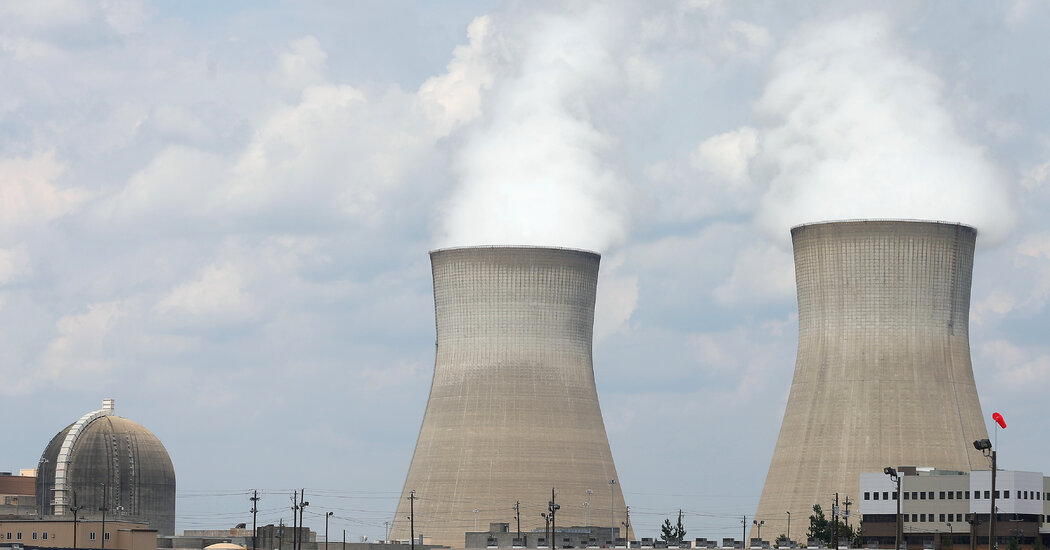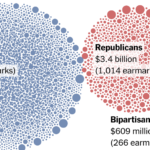
WASHINGTON — As Western leaders have raced to respond to Russia’s invasion of Ukraine with steps to reduce imports of Russian fossil fuels, U.S. lawmakers and officials are confronting a thorny dilemma over another source of energy: the Russian uranium that powers many American nuclear plants.
While President Biden banned imports of Russian oil, gas and coal last month, his administration did not immediately move to halt uranium imports from Russia. The United States relied on Russia for about 16 percent of its uranium in 2020, with another 30 percent from two of the country’s close partners, Kazakhstan and Uzbekistan, according to the U.S. Energy Information Administration.
Russia’s exports of oil and gas have received outsize attention as Western nations have sought to impose economic penalties on the country. But the invasion of Ukraine has also put a spotlight on Russia’s sale of uranium to the United States, the world’s largest consumer of the metal, where nuclear power accounts for about 20 percent of electricity generation.
Dismay over the war has given common purpose to energy officials who view nuclear power as key to Mr. Biden’s long-term vision for reducing carbon emissions and to members of Congress who have argued for years to scale up domestic uranium production and enrichment. To both camps, Russia’s aggression adds urgency for the United States to reduce its dependency on imported uranium and invest in domestic suppliers that could help power the next generation of nuclear plants.
Senator John Barrasso, Republican of Wyoming, introduced a bill in March to ban imports of Russian uranium, and a matching, bipartisan bill was introduced in the House last week.
“While banning imports of Russian oil, gas and coal is an important step, it cannot be the last,” Mr. Barrasso said in a statement. “Banning Russian uranium imports will further defund Russia’s war machine, help revive American uranium production and increase our national security.”
At her confirmation hearing last month, Kathryn Huff, Mr. Biden’s pick to lead the Energy Department’s Office of Nuclear Energy, said the invasion of Ukraine demonstrated the nuclear industry’s vulnerabilities and highlighted the need to increase domestic production.
“It is critically important that we wean ourselves off unstable, untrustworthy sources of our critical fuels, including uranium,” she said.
The United States has sought to manage its reliance on Russian uranium since the end of the Cold War. Under an agreement reached with Russia’s Ministry for Atomic Energy in 1992, the United States sought to limit purchases of Russian uranium to about 20 percent of its total need. An amendment to that agreement, signed in 2020, aimed to further reduce imports to 15 percent by 2028.
But as of 2020, close to half the uranium used for fuel in the United States was imported from Russia, Kazakhstan and Uzbekistan. The amended agreement authorized the United States to purchase as much as 24 percent of its nuclear fuel from Russia next year.
Further complicating matters, the Energy Department announced plans in 2020 to invest up to $3.2 billion in the development of a new generation of advanced reactors — including one devised by TerraPower, a company co-founded by Bill Gates — that rely on a more enriched variety of uranium that is only produced at commercial scale by Russia.
Domestic suppliers have been hesitant to invest in producing that fuel — high-assay, low-enriched uranium, or HALEU — as the advanced reactors that could use it are still years from completion.
“It’s not that anyone thinks we can’t make it,” said Matt Bowen, a research scholar at the Center on Global Energy Policy at Columbia University’s School of International and Public Affairs. “But it would involve costs, and none of them have been willing, I think for very understandable reasons, to make that investment because they aren’t sure if these reactor projects are really going to happen.”
The new reactors have been designed to be cheaper, safer and more efficient than older ones. They have been proposed in the hope of replacing some of the 93 reactors that are currently in operation across the United States, many of which are more than 40 years old and nearing the end of their intended life spans.
But in light of Russia’s actions, TerraPower and other companies developing new reactors have said they will not use the more enriched fuel from Russia, even though no commercial alternative exists.
As aging nuclear plants are gradually retired, renewable sources such as wind and solar power would have to be drastically increased to fill the gap in carbon-free power production if new nuclear plants are not built.
In recent hearings on Capitol Hill, some senators have discussed asking the Energy Department to help create fuel that is needed for advanced reactor projects in the short term. The department maintains limited inventories of enriched uranium that can be “down-blended,” or mixed with unenriched material to produce fuel that is usable in advanced reactors.
But to create a steady stream of uranium for existing nuclear plants and future models, lawmakers have also called for renewed funding for mines and enrichment facilities that have long sat idle or reduced production.
The United States has significant uranium deposits in states such as Wyoming, Texas and New Mexico. But the troubled environmental history of some sites and the impact they have had on tribal lands have also revived longstanding concerns about resuming large-scale uranium production domestically.
At a hearing on critical mineral supply chains on Thursday, Senator Martin Heinrich, Democrat of New Mexico, cited the continued environmental challenges caused by a mine in the Pueblo of Laguna, a Superfund site in his state that has defied cleanup efforts for decades.
“Uranium mining and milling sites still leach radioactive waste into our groundwater,” Mr. Heinrich said. “It is still barely reclaimed.”
The question of how to support the nuclear industry while moving away from Russian suppliers will most likely be an urgent priority for Dr. Huff, who could be confirmed by the Senate this month.
Last year, the Energy Department moved ahead with plans to establish a national reserve that would stockpile uranium purchased from domestic producers in part to help jump-start the industry. Congress allocated $75 million in 2020 to help fund the reserve, but no purchases have been made.
But the effort to begin buying uranium for the reserve has been met by resistance from Democrats, including Senator Edward J. Markey of Massachusetts. In a letter last year, Mr. Markey and five House members argued that the creation of the reserve posed “a serious threat to the health of tribal and environmental justice communities, as well as to the overall environment.”




